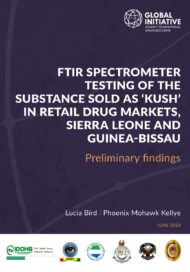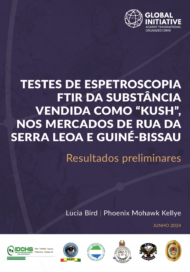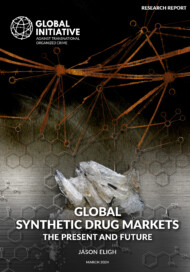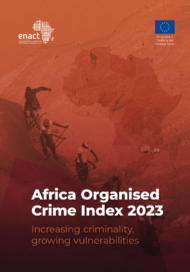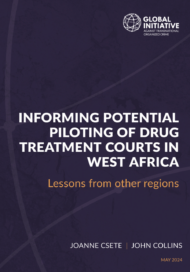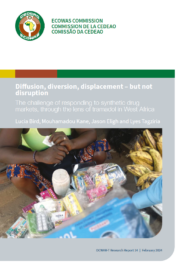Posted on 12 Jun 2024
On 4 April 2024, the president of Sierra Leone, Julius Maada Bio, declared a national emergency over drugs, largely due to the devastating impacts of ‘kush’. People who use drugs (PWUD) in countries across the sub-region, including Liberia, Guinea, The Gambia, Guinea Bissau and Senegal have reported that ‘kush’ is also present.
In the absence of reliable chemical testing, ‘kush’ was suspected to include fentanyl, acetone, formaldehyde, tramadol, and even human bones. ‘Kush’ is believed to have caused a number of deaths in Sierra Leone, underlying the urgent need for action.
To address this data gap, in conversation with the Governments of Sierra Leone and Guinea-Bissau, the GI-TOC and the Clingendael Institute co-designed research to support civil society and government stakeholders to develop evidence-based responses by providing more data about ‘kush’.
As part of this study, the National Drug Law Enforcement Agency of Sierra Leone, and the Judicial Police of Guinea-Bissau authorised the GI-TOC and its partners to conduct chemical testing of ‘kush’. FTIR spectrometer testing of ‘kush’ indicates the presence of synthetic cannabinoids and nitazenes, powerful synthetic opioids in Freetown and Bissau.
Confirmatory testing, using a different set of equipment, known as GCMS/LCMS testing is urgently required – this has been organised as part of this study, but has not yet concluded. In the absence of this confirmatory testing, the FTIR spectrometer findings remain preliminary.
Reportedly entering Freetown’s retail drug markets around 2016, ‘kush’ has quickly spread across the country. According to all people who use drugs (PWUD) interviewed during our research, the substance is characterized as cheap and the most widely consumed drug in Sierra Leone. Despite its prevalence, there has been a lack of clarity around the chemical composition and supply chain.
The spread of ‘kush’ is not confined to Sierra Leone alone, with PWUD across growing countries in the region reporting its emergence. In the absence of data regarding its chemical composition, it was unclear whether the substance sold in these countries as ‘kush’ shared the chemical composition of ‘kush’ found in Freetown. The FTIR spectrometer testing indicates that in both Bissau and Freetown ‘kush’ shared similar chemical composition.
‘Kush’ poses a threat to West Africa as a region, and requires a coordinated response. Regular chemical testing of retail drug samples – using FTIR spectrometers, and GCMS testing capabilities – is urgently needed. Without this, it is impossible for the governments in West Africa to accurately monitor the regional illicit drug markets and develop evidence-based responses.
What is ‘Kush’?
‘Kush’ is a synthetic drug – identified by FTIR spectrometer testing to contain synthetic cannabinoids and/or nitazenes – sprayed onto a leaf. Marshmallow leaf, a legal commodity used for making teas, is most commonly used. However leaves growing naturally in Sierra Leone are also increasingly being used in its manufacture. ‘Kush’, which varies in colour (light green, dark green, brown and reddish), is smoked, typically mixed with tobacco.
Use of ‘kush’ was first reported in Sierra Leone in around 2016, and has more recently also been reported in other countries in the subregion, including Guinea, Liberia, The Gambia, Guinea-Bissau and Senegal. Consumption is concentrated among the youth, broadly 20- to 35-year-olds. PWUD report that ‘kush’ enables them to forget the stresses of life and, depending on the potency, makes them feel relaxed, or simply removes all feeling. The effects of ‘kush’ are relatively short – typically lasting between 5 and 30 minutes.
‘Kush’ is very cheap in Sierra Leone. In Freetown, the price has steadily increased, from 5 SLL in 2020 (US$0.25), to 10–15 SLL (US$0.50–0.75) in January 2024, spiking to 15–20 SLL (US$0.50–1.0) in April 2024. This recent spike is likely to be a result of the law enforcement crackdown on the drug in the wake of the declaration of a state of emergency related to drugs in Sierra Leone on 4 April 2024. In Bissau, one dose of ‘kush’ costs CFA 1 000 (US$1.60) in June 2024, significantly more expensive than in Freetown.
